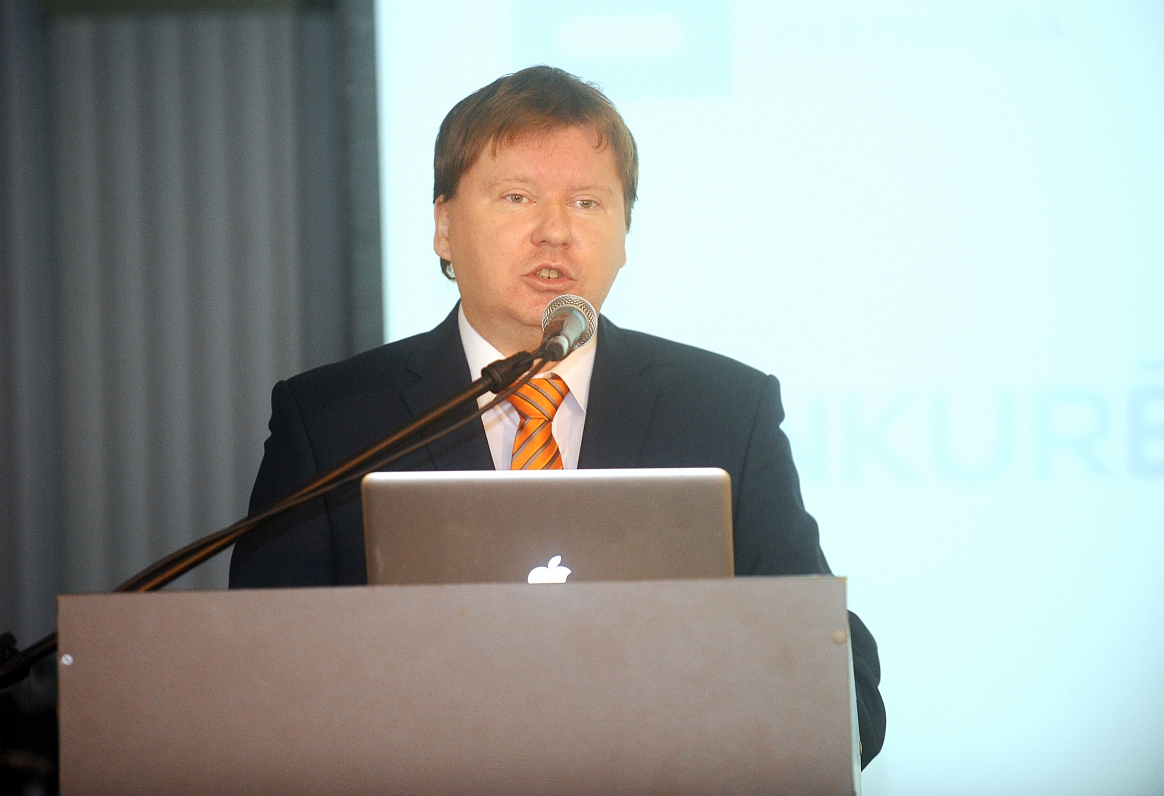Each year the number of foreigners working in Latvia is growing, despite the high requirements for the minimum wage they're paid. Their number is close to 10,000 now. More and more often, we hear local entrepreneurs say they don't have enough employees and that rules for introducing so-called cheap labor should be relaxed. Will Latvia be able to avoid mass immigration, including the attraction of cheap workforce?
There's a workforce problem in Latvia. It's not like it's the first year we're in the know. Of course, there were other problems during the crisis, but as the economy is picking up the pace... people start talking about this matter. The discussion of these problems will only escalate.
We can see it from different research, including research about the foreign investment climate.
Regarding whether we can escape a huge influx... I think you'll agree, like many entrepreneurs and policymakers ... that it's basically unavoidable we'll need more workers. Especially with a growing economy. It's normal.
Of course there's unemployment [in Latvia] now. But I carried out research about long-term unemployment for the OECD a year or two ago. Even back then it was evident that there was no real unemployment. It's the same now. There's basically no unemployment. There's some part hiding in the grey and black market; there are some who simply don't want to work. Then there are people who are unqualified and don't want to change anything.
I suppose that nowadays the people who are willing to work and are healthy can, more or less, find themselves a job.
Do you really suppose that people in Latgale [Latvia's eastern region], where there's 16% unemployment, don't want to work?
A great part of them have been unemployed in the long term.
But we see two things here. First of all, there are the local resources, meaning the number of people we can attract to the job market. Secondly there's the matter of immigration.
If we talk about the local resources, statistics say the average registered unemployment is about 8% in Latvia and 16% in Latgale. But we should look at the content of these local resources. Many of them are senior people.
It's the 50+ age group. Is it really true that nowadays someone aged 51 and more is old and unsuitable for the job market?
I'm talking more about [people aged] 55 to retirement age and more.
People want to work for different reasons. In Germany it's because people want to be more socially active. In Latvia, however, it may be the case that they need the money. But the question remains on how they're being attracted [to the work market]? It's clear that classic methods don't really work here.
In Germany and Scandinavia they work very much on this matter as they see it's a resource. In Latvia a little something is being done, but much too little in general.
The second group are disabled people. There are about 170,000 disabled people in Latvia. Just 24% or one fourth are in the work market. Eight thousand are registered as unemployed. They are a resource too.





























